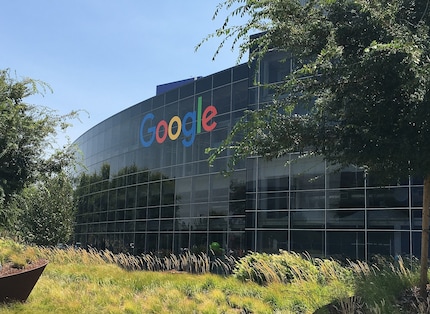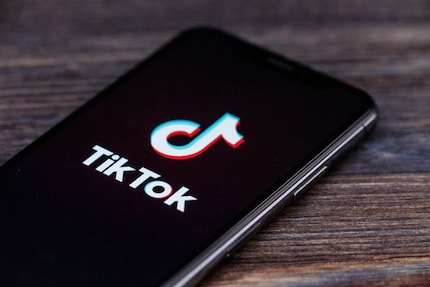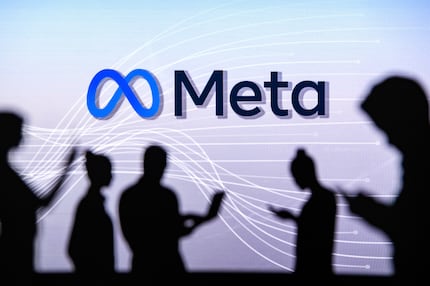
Background information
Digital Markets Act (DMA): what actually is it?
by Florian Bodoky

The deadline for implementing the Digital Markets Act has passed. The six companies appointed as gatekeepers by the European Union must adapt their core services to the new regulations.
The European Union's Digital Markets Act (DMA) is intended to prevent large tech companies from abusing their market power - to the detriment of smaller companies and customers.
The transition period expired on 7 March 2024. The EU had given the particularly large tech companies, known as gatekeepers, until this date to implement the requirements for "centralised platform services". One and a half years after the DMA came into force in July 2022, the companies were able to adapt their services and this is the result.
The EU has categorised six companies as gatekeepers so far. The regulations of the DMA apply to specific products and services offered by these companies - however, the requirements are legally binding only in the EU. This is relevant because some of the products are also offered in the EEA. This also includes the non-EU states of Iceland, Norway and Liechtenstein. You can find everything about the DMA here:
I am only summarising the most important changes here. There are also dozens of technical, legal or company-relevant changes. These are only linked so that the article remains clear.
From now on, Google's parent company must comply with special requirements for the following services in the EU: Google Search, Google Maps, Google Play, Google Shopping, Google Chrome, Android and YouTube - and Alphabet's online advertising system.

Of the six gatekeepers, no other company has as many services that are considered a "central platform service" as Alphabet. Accordingly, the Google parent company has made many adjustments. The most drastic of these are:
Amazon's ad system - i.e. the online platform's advertising algorithm - and the Amazon marketplace for third-party sellers fall under the category of "central platform services".
The most important change from a consumer perspective is that smaller suppliers and their products must be given higher and more frequent visibility in a prominent position in the online department stores'. Amazon must adapt its algorithm accordingly.

In future, Amazon will ask customers in the EU shop for permission before the company collects data for personalised advertising. If this is refused, no more information may be collected - not even for Prime Video, Twitch, Kindle e-readers, the Alexa smart assistant and so on. This is a problem for Amazon in that it makes it less attractive for third parties to advertise on the platform.
In addition, Amazon will in future prepare comprehensive reports on financial details for advertisers and publishers. These will contain information about the costs for advertisers for individual adverts and the share a publisher receives when an advert appears on their site or app.
Apple has had a turbulent time in terms of the DMA and probably still has some ahead of it. Just last week, the Californians were fined 1.8 billion euros for abusing their market power in the EU.
More complaints could now follow. Apple must now allow sideloading, i.e. the downloading of apps via third-party stores. Although Apple does this, it is linked to new fees, so it is probably not worthwhile for many companies to opt out of the current system. Spotify, Microsoft and others criticise that these are therefore sham solutions. It is not yet clear whether the EU will launch an investigation.
In addition to the App Store, iOS and Safari are also considered core Apple services. Apple is also opening up its NFC interface so that third-party suppliers can also offer wallet apps and contactless payments. Apple must also allow payment methods other than Apple Pay within apps. This will make it easier for suppliers to avoid Apple's 30 per cent fee. The only mini-victory for Apple: iMessage is not a core service - probably also because Apple recently introduced the RCS protocol.
Last but not least: browsers are now also allowed to use an engine other than Webkit.
TikTok's parent company seems very unhappy about being appointed gatekeeper. The company is currently appealing - they want their status to be revoked. The Chinese company is complaining that it is not big enough. The figures on which the EU Commission is relying would only be achieved in China.

Until then, TikTok also offers a download function for user data. This allows you to download a copy of all data. There is also a so-called data portability API. This allows developer companies to ask users whether and which user data they are allowed to transfer - for advertising purposes, for example. There are also new tools for in-app and web analyses. The aim here is to measure the effectiveness and performance of content.
Meta has almost as many core services as Google. Six of its services have been named core services: Facebook, Facebook Marketplace, Messenger (formerly Facebook Messenger), Instagram, Meta Ads (the advertising service) and WhatsApp.

Appeals are also still pending from Meta. The social media giant believes that Messenger and the marketplace in particular have been wrongly categorised as core services. Messenger is an integrated service of Facebook. Therefore, the EU cannot treat it as an independent service. And the Facebook marketplace only works between users. Meta only acts there as an intermediary company.
In addition to the option to download user data - which has been available for a long time - Meta has announced a number of other data protection functions. In particular, it is now possible to separate previously linked Facebook and Instagram accounts and manage them separately.
The much-discussed interoperability of WhatsApp is also coming. It will soon be possible for WhatsApp users to send and receive messages to and from other messengers. Of course, only if the supplier of the other messenger also wants this. Signal and Threema, for example, have already declined - it would have a negative impact on the data protection standard.
The Redmond software giant already made various concessions to the DMA last autumn. Under Windows 11, you can now deactivate the integrated Bing search and uninstall Edge. Theoretically, other search providers such as Google are even allowed to integrate their engine into Windows (with additional software). Google developers will also be able to integrate their news feeds into the Windows widgets.

In addition, you can also uninstall standard apps such as Cortana, Photos and the camera software more easily. All of these changes have already been rolled out in the EEA countries - that means in the EU as well as Norway, Iceland and Liechtenstein.
Microsoft was lucky with the categorisation of other services. The EU also wanted to categorise Edge, Bing and Microsoft Advertising as core services. Microsoft lodged an appeal and the EU Commission decided against it. Probably because the services are simply not important enough and are used too little.
There is still the business social media platform LinkedIn: Microsoft allows all users to download a copy of all data that they have ever made available on the platform at any time - be it personal data or posts. The same applies to administrators of LinkedIn pages - they can also download data that other members have published on the page, provided they have given their consent.
In addition, business users who use LinkedIn Marketing Tools can have their marketed services verified by independent partners. In concrete terms, this means that these partners confirm to potential customers that they are genuine services and not fake suppliers.
It remains to be seen whether all adjustments will be in line with the DMA - there is still the option to lodge a complaint. The EU can also appoint other companies as gatekeepers or services as core services in the future - experts are eyeing Elon Musk's "X" messaging service. However, the EU has no concrete plans in this regard.
I've been tinkering with digital networks ever since I found out how to activate both telephone channels on the ISDN card for greater bandwidth. As for the analogue variety, I've been doing that since I learned to talk. Though Winterthur is my adoptive home city, my heart still bleeds red and blue.
Interesting facts about products, behind-the-scenes looks at manufacturers and deep-dives on interesting people.
Show all